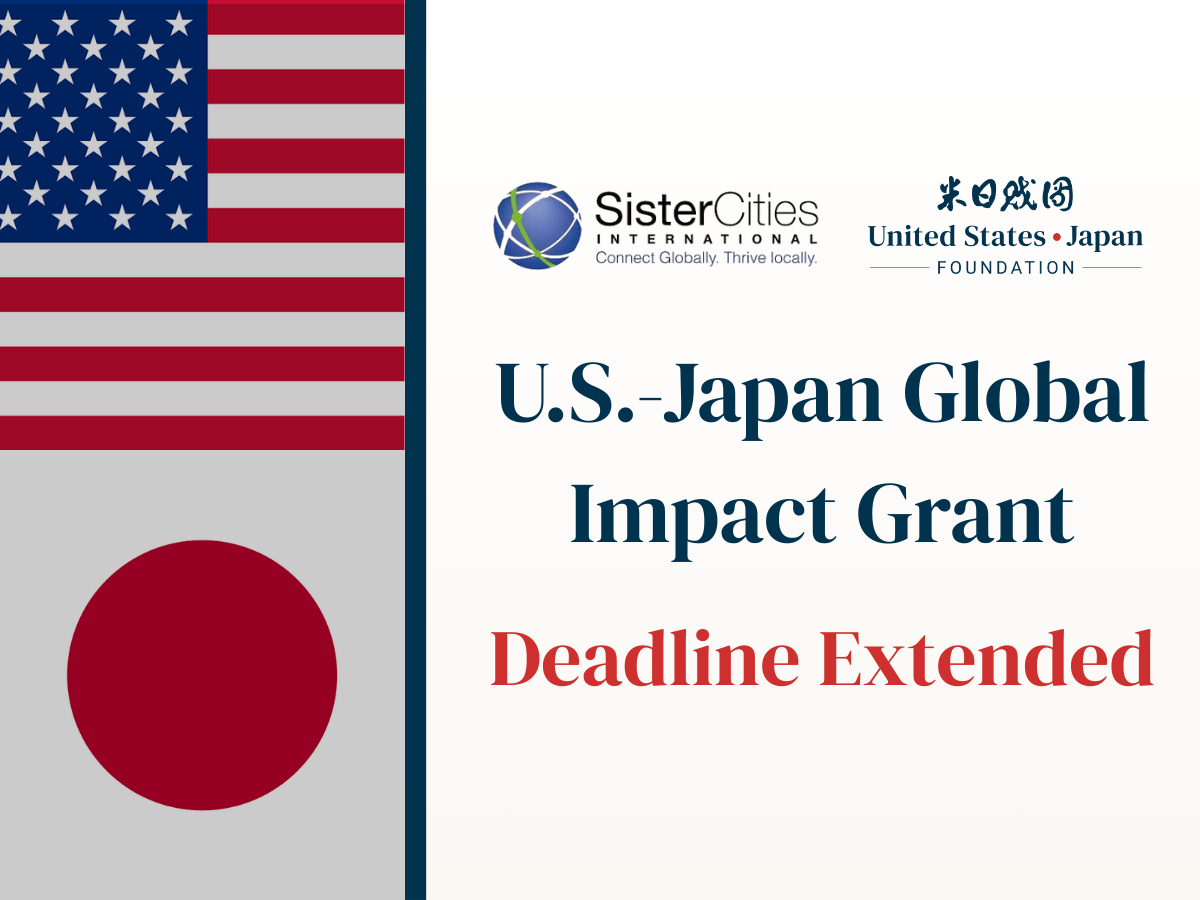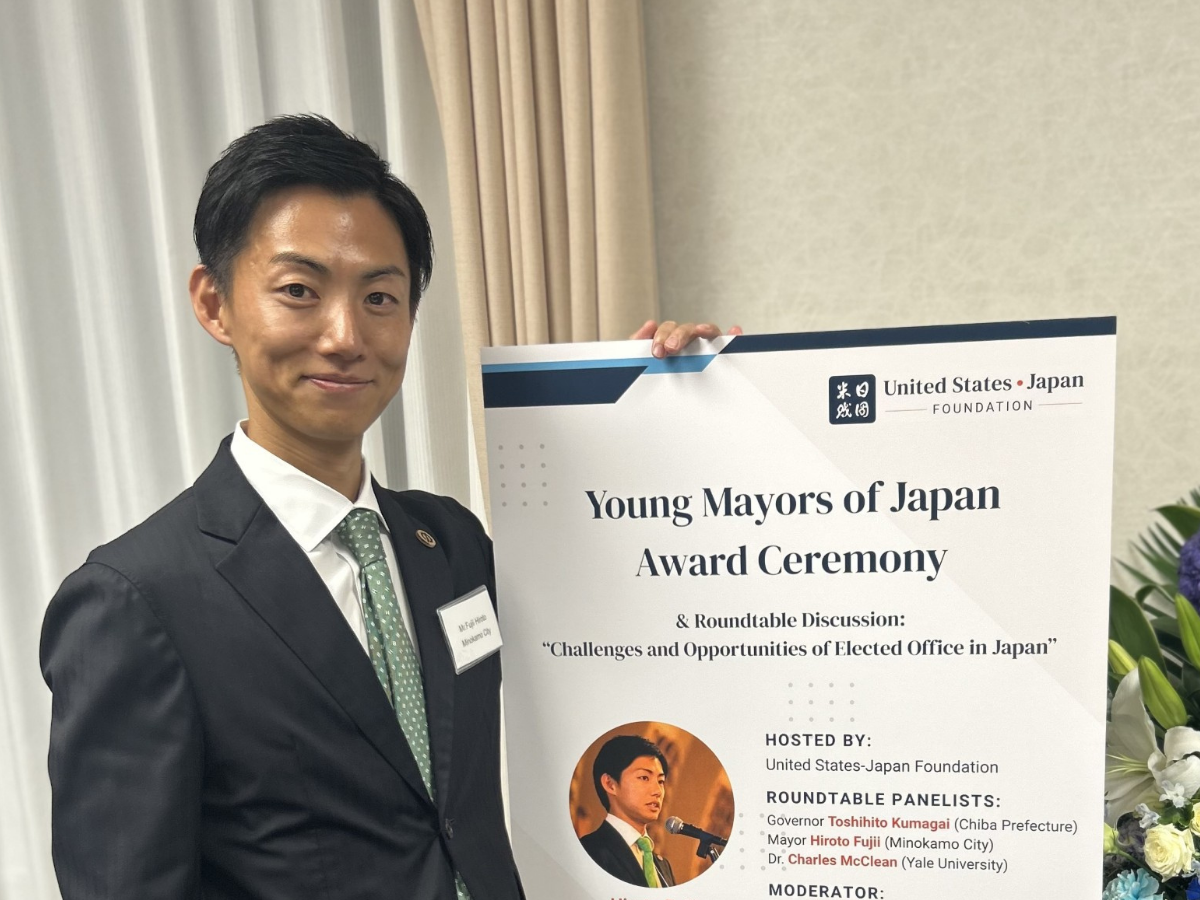The United States-Japan Foundation (USJF), in partnership with Sister Cities International (SCI), announces the launch of the U.S.-Japan Global Impact Grant, a new initiative designed to empower sister city partnerships to design and implement innovative, community-led responses to shared global challenges.
As a sponsor of the 2025 U.S.-Japan Sister Cities Summit, USJF continues its four-decade commitment to fostering people-to-people exchange as the foundation of bilateral relations. Today, that mission is evolving—helping sister cities move from symbolic partnerships to dynamic platforms for collaborative problem-solving.
Reflecting on this shift, Haruto Okabe, Japan Representative of the United States-Japan Foundation, said, “As a Presenting Partner of the Sister Cities Summit this September, I was struck by how powerful—and how essential—sister city partnerships can be in today’s world. The deep relationships built over decades are not only symbols of friendship but can also serve as living laboratories for tackling global challenges. We hope this new grant will spark innovative projects that can be shared widely and inspire others.”
Sister Cities as Innovation Labs
Across more than 460 U.S.-Japan sister city partnerships, communities face many of the same challenges—climate resilience, economic revitalization, aging populations, and youth engagement among them. The U.S.-Japan Global Impact Grant supports these partnerships in transforming their long-standing relationships into innovation labs, where cities can co-create solutions and share what works.
With this collaboration between USJF and SCI, we encourage cities to exchange strategies for climate adaptation and disaster preparedness, collaborate on equitable economic development models, engage younger generations in civic leadership, partner on inclusive policies for increasingly diverse communities, and build cross-Pacific networks for education, technology, and social innovation.
Carlo Capua, Chair of the Sister Cities International Board of Directors, noted that the program captures the spirit of citizen diplomacy that has defined Sister Cities International for nearly seventy years. “This grant represents the power of citizen diplomacy in action,” he said. “By supporting local communities in Japan and the U.S., we can spark solutions with global significance.”
The program will provide grants of up to $25,000 to city partnerships developing measurable, replicable projects that address shared challenges. Applications open November 1, 2025, with grant recipients announced in January 2026. All 437 Sister Cities International member communities are eligible to apply in partnership with their Japanese counterparts. Applicants must hold nonprofit status directly or through a fiscal sponsor.
The initiative launches during a milestone year marking 170 years of U.S.-Japan diplomatic relations and 80 years since the end of World War II, coinciding with the start of America250 celebrations. It also reflects USJF’s commitment to leveraging friendship for the greater good by investing in local changemakers whose work strengthens cross-border collaboration and social impact.
Applications open November 1, 2025, at https://sistercities.org, and close on January 31, 2026, at 11:59 PM ET. For more information about the U.S.-Japan Global Impact Grant, watch the recording of the Information Session held on December 2, 2025, here. For more information about USJF’s grant programs, visit https://us-jf.org/en/grants.
About Sister Cities International
Founded in 1956 by President Dwight D. Eisenhower, Sister Cities International (SCI) is the world’s oldest and largest volunteer network dedicated to citizen diplomacy. With more than 400 U.S. member communities and 1,800 partnerships in over 140 countries, SCI promotes peace and mutual understanding through cultural, educational, and economic exchange.
October 28, 2025




